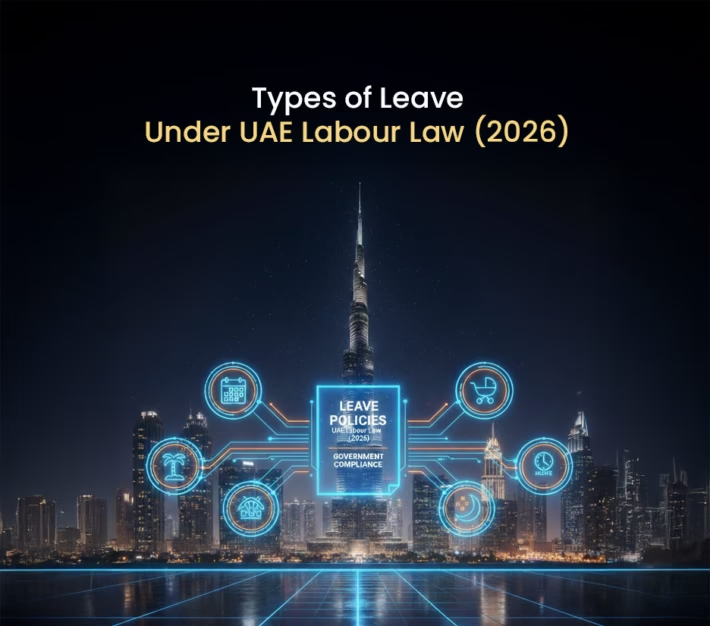Company Setup in Dubai – What Paperwork You Need

If you are serious about company setup in Dubai Free Zone or anywhere else in the Emirate, this guide will help you approach the process thoroughly, accurately, and with fewer surprises.
Table of Contents
UAE Company Setup
Every month, thousands of new entrepreneurs register their businesses in Dubai, and for good reason. It is one of the most business-friendly places in the world. But there is one thing that consistently slows new founders down, and that is PAPERWORK.
Whether you are a first-time founder or an international investor expanding into the region, understanding which documents you need and how to prepare them correctly can make all the difference. Special attention is given to business setup in Dubai free zones, which remains the most popular and efficient route for new businesses.
Why Documents Matter for Company Formation in Dubai
Every business license application in Dubai must be supported by the correct documents. Without them, your application will either be delayed or rejected. Even a small oversight, like an expired passport or incorrect signature, can slow down the process.
That is why document preparation is one of the most critical steps in setting up your business.
What you need depends on:
- The type of entity (individual or corporate shareholder)
- Your license type (commercial, professional, industrial)
- Your location (mainland, free zone, or offshore)
- Your business activity (regulated or general)
Authorities will verify your identity, legal intent, ownership structure, and business scope before issuing a trade license. Having everything ready in advance can save you weeks of back and forth.
A) Mainland Company (Dubai Economy and Tourism)
A mainland company license allows you to operate across the UAE and bid for public sector contracts. These businesses are registered with Dubai Economy and Tourism (DET) and are ideal for those targeting local trade or government projects.
Key requirements:
- Office space registered with Ejari
- Licensing based on regulated or unregulated activities
- Additional external approvals for certain sectors (e.g., healthcare, media, education)
B) Free Zone Company
Free Zones are special jurisdictions that allow 100% foreign ownership, offer simplified licensing, and are known for faster setup timelines. Each Free Zone has its own rules, facilities, and sector focus.
Commonly used Free Zones include:
- IFZA
- DMCC
- Dubai South
- DAFZA
- Dubai Media City
- Dubai Internet City
Why choose this?
A Dubai Free Zone business setup is cost-effective, flexible, and designed for startups and SMEs. It is the most recommended route for entrepreneurs who are not yet ready to operate on the mainland.
Documents You Need Based on Your Setup
The documents required to open a company in Dubai depend on several factors, including the ownership structure, the jurisdiction you choose (Mainland, Free Zone, or Offshore), and whether you are applying as an individual or through a corporate entity.
A) For Individual Shareholders
If the company is being established by one or more individuals (rather than another company), the following documents are typically required:
Valid Passport Copy
- The passport must be valid for at least six months at the time of submission.
- Submit a color scan of the identification page, with all details visible.
- Ensure the name matches other submitted documents exactly.
Recent Passport-Sized Photographs
- Photos should be taken against a white background.
- Dimensions and format must meet the specific authority’s requirements.
- Usually required in both physical and digital formats.
Proof of Residential Address
- Recent utility bill, tenancy contract, or bank statement that includes the applicant’s name and current address.
- Must be dated within the past 90 days.
- Some free zones may accept an electronic utility bill.
UAE Residence Visa (If applicable)
- Required for UAE residents or expatriates already living in the country.
- Copy must include the visa page and Emirates ID (front and back).
- If you are not a UAE resident yet, this requirement does not apply.
No Objection Certificate (NOC) from Current Sponsor
- Required if the applicant is already under a UAE employment or dependent visa.
- The NOC must be issued by the current sponsor, employer, or family member.
- Must be on official letterhead, signed, and stamped.
B) For Corporate Shareholders
If the company is being established under the name of another legal entity (such as a foreign parent company), the following documents are generally required:
Certificate of Incorporation
- Proves that the parent company is a registered legal entity in its home country.
- Must be notarized and attested by the UAE Ministry of Foreign Affairs (MOFA) if issued abroad.
Memorandum and Articles of Association (MOA & AOA)
- Must clearly outline the activities, powers, and ownership structure of the parent company.
- Should be submitted with a legal translation if the document is not in English or Arabic.
Board Resolution
- A resolution was passed by the board of directors authorizing the formation of the new company in Dubai.
- Must state the name of the new entity, its capital structure, and the name of the person appointed to act on behalf of the company.
Power of Attorney (POA)
- Grants legal authority to the person signing documents or representing the parent company during setup.
- Must be notarized and attested in the country of origin and again by the UAE Embassy and MOFA.
Certificate of Good Standing (sometimes required)
- This confirms that the parent company is still legally active and compliant in its country of registration.
- Required by certain Free Zones and Offshore jurisdictions.
Proof of Address of the Parent Company
- Usually required in the form of a recent utility bill, lease agreement, or business license showing the registered address.
- Some authorities may also request a company profile or corporate structure chart.
C) For All Applicants (Individuals and Corporations)
Several documents are required regardless of your setup or ownership type. These are standard parts of every business license file.
Trade Name Reservation Certificate
- You must submit a copy of the official trade name approval.
- This shows that your desired business name has been checked and reserved with the relevant authority.
Initial Approval Certificate
- Issued after your basic application has been reviewed.
- This confirms that your business activity and structure are acceptable in principle.
- Required before lease agreements and final license steps can proceed.
Lease Agreement or Office Space Contract
- Most authorities require a registered office location before issuing a trade license.
- Mainland companies must submit a tenancy agreement registered with Ejari.
- Free zone companies must provide a lease contract or space allocation letter from the free zone itself.
Business Activity Selection Form
- Lists your primary and secondary business activities.
- Must align with the authority’s official activity list.
- For regulated activities, additional approvals may be needed from specialized bodies (e.g., DHA, KHDA, RERA).
Application Forms (Authority-Specific)
- These include various forms such as application for license, shareholder details, manager appointments, and economic register entries.
- Each Free Zone or authority will provide its templates.
- All forms must be typed, signed, and submitted in the correct sequence.
How to Prepare Your Documents Correctly
Getting your documents ready is not just about collecting files. It is about ensuring everything is complete, consistent, and acceptable to the issuing authority.
Errors in this stage can lead to license rejections, delays, or requests for additional verification, all of which cost time and money. Expertise from our seasoned professionals will ease the process, ensure every requirement is met, and fast-track your approval.
Use High-Quality Scans
All scanned documents should be:
- In full color
- High resolution (at least 300 DPI)
- Cropped with no shadows, watermarks, or fingers in the frame
- Saved as PDF or JPEG, based on authority preference
Authorities will reject blurry or low-quality scans, even if the content is correct.
Match All Names and Signatures
Ensure that your name, nationality, and signature are consistent across:
- Passport
- Visa (if applicable)
- Trade name approval form
- Power of Attorney
- MOA or board resolution
Even small discrepancies (e.g., missing middle names or different signature styles) can trigger a request for clarification.
Stick to Official Templates
Many authorities, especially for business setup in Dubai Free Zone, provide template formats for common documents like:
- Board resolutions
- Shareholder agreements
- Letters of undertaking
- Declaration forms
Whenever possible, use these templates rather than creating your own. They are pre-approved and reduce the risk of rejection.
Prepare Both Soft and Hard Copies
Even though most Free Zones have moved to digital portals, you may still be asked to:
- Present hard copies for verification
- Submit original signed forms for attestation
- Provide notarized versions in person or via courier
Keep both digital and printed versions of all documents readily accessible.
Double-Check Expiry Dates
Some documents, especially passports, trade name reservations, and lease agreements, have time-sensitive validity. Submitting expired versions will immediately stall your application.
Be sure to check:
- The passport is valid for at least six months
- The lease is current and valid throughout the licensing process
- Trade name reservation is still active (most expire in 30–90 days)
- Corporate documents are recently issued (within 3 to 6 months)
Notarization and Attestation: What You Need and When
Certain documents, especially those issued outside the UAE, must be legally validated to prove authenticity. This process is known as notarization and attestation.
Understanding when and how to complete this step can prevent unnecessary back-and-forth.
What is Notarization?
Notarization is the act of having a document certified by a licensed notary public. This confirms the document is genuine and that the signatures are valid.
In Dubai, notarization is typically required for:
- Board resolutions
- Memorandum of Association (if submitted as part of a corporate structure)
- Power of attorney
- Shareholder agreements
If these documents are being created within the UAE, they must be notarized at a Dubai Courts notary office or through an approved online notary service.
What is Attestation?
Attestation is the process of legalizing foreign documents so that they are accepted by UAE authorities. This is required for any document that originates outside the UAE.
The standard attestation path includes:
- Notarization in the home country
- Attestation by that country’s Ministry of Foreign Affairs
- Legalization by the UAE Embassy in that country
- Final attestation by the UAE Ministry of Foreign Affairs (MOFA)
Documents that usually require attestation include:
- Certificate of Incorporation (for foreign parent companies)
- MOA and AOA
- Power of attorney issued abroad
- Certificates of Good Standing
- Academic or professional credentials for regulated business activities
When is Translation Required?
If your document is in any language other than Arabic or English, a legal Arabic translation may be required before submission.
Dubai authorities typically accept English documents. However, Mainland DET and some Free Zones may request an officially stamped Arabic version for notarized forms or court-based submissions.
Translations must be completed by a certified legal translator registered with the UAE authorities. Our team provides this service directly, ensuring every document meets the official standards without added hassle.
What Happens If You Skip This Step?
Submitting unnotarized or unattested documents when they are required will result in:
- Immediate rejection of your application
- Delays in license issuance
- Potential fines or additional fees to reprocess the file
- A negative compliance record with the free zone or DET
It is always better to complete notarization and attestation before submitting your documents to avoid rework.
What Free Zones May Ask For (That Others Do Not)
Each Dubai Free Zone operates under its registration authority, which means the required documents may vary slightly. Some may request additional supporting materials depending on your business type, shareholder nationality, or office plan.
Extra Documents May Be Requested
Here are a few examples of extra documents that may be requested during a typical business setup in Dubai free zone:
Personal or Business Profile
Certain Free Zones may request:
- A personal CV of the shareholder
- A business plan
- A company profile (for corporate shareholders)
This helps the authority assess your experience, intended operations, and compliance history.
Share Capital Proof
While many Free Zones have minimal capital requirements, some still require:
- A declaration of share capital
- A bank letter showing capital deposit (rare but still practiced in specific zones)
- A shareholder resolution confirming the capital structure
Company Structure Chart
If you are using a complex ownership structure (especially one involving multiple layers or Offshore entities), the Free Zone may ask for a visual chart to explain:
- The parent company
- Any intermediate holding companies
- The final beneficial owners
Economic Substance or Ultimate Beneficial Owner (UBO) Declarations
Due to international compliance standards, many authorities now require:
- A UBO declaration form
- Economic substance self-assessment
- Anti-Money Laundering (AML) declaration
These forms are straightforward but must be signed, dated, and submitted with your license application.
What Happens If a Document Is Missing?
Missing documents are one of the most common reasons company formation applications in Dubai are delayed or rejected.
It may seem like a minor issue, a missing page from a passport scan, an unsigned NOC, or an expired trade name certificate, but these gaps create real obstacles in the licensing process.
Here is what you can expect if a required document is not submitted or is submitted incorrectly.
Application Rejection or Suspension
Authorities will not proceed with incomplete submissions.
If you submit a file without all the required documents, one of the following may happen:
- Your application is placed on hold until the missing items are received
- You are issued a formal rejection and required to start over
- The licensing fee is forfeited (in some Free Zones) and must be paid again
Even a temporary suspension can cost you valuable time, especially if office space has already been reserved or investor timelines are in motion.
Delayed Approvals
Missing or outdated documents trigger additional review steps.
If a signature is inconsistent or if an approval certificate is expired, the reviewing officer may flag your file for manual evaluation. This adds days, sometimes weeks, to your setup timeline.
Tip: It is not enough to submit a document. It must be valid, current, and in the required format.
Resubmission Fees
Some jurisdictions charge administrative fees for file resubmission, especially when the delay is caused by applicant error. Others may invalidate your trade name reservation or initial approval if resubmission is not made quickly enough.
If your company setup requires multiple shareholders or has international partners, these mistakes can have wider consequences across jurisdictions.
Missed Registration Deadlines
Many document approvals are time-sensitive. If one part of your file expires while you’re waiting for another to be corrected, you may have to start the process all over again. Here are some estimated timelines for reference.
Examples include:
- Trade name reservations (usually valid for 30–90 days)
- Initial approvals (expire after a set period, depending on the authority)
- Lease agreements (must be active when the license is issued)
Limited Access to Banking and Immigration Services
You cannot open a corporate bank account in the UAE without an active license and a complete set of formation documents.
Likewise, if your business setup includes visa allocation, delays in submission can prevent you from applying for your establishment card, investor visa, or employee permits.
In short, incomplete documentation doesn’t just delay your business license, it affects every part of your operational readiness.
How We Help Prevent This
Our team ensures every application is checked and verified before submission. From document formatting and Arabic translation to notarization and compliance checks, we work with you step-by-step to avoid gaps, delays, and last-minute revisions.
What is a PRO?
A PRO is a licensed agent who liaises with government departments and regulatory bodies on your behalf. They are experienced in handling:
- Trade license applications
- Visa processing and immigration formalities
- Attestation and notarization of documents
- Labour and immigration card renewals
- Regulatory compliance across DET, Free Zones, and other authorities
Setting up a business in Dubai requires more than just filling out forms. There are real-time decisions to make, documents to coordinate across jurisdictions, and approvals to secure all while trying to avoid costly delays.
This is where a Public Relations Officer (PRO) can make a significant difference. Our PRO services in Dubai streamline the company formation process.
Here is what we handle on your behalf:
| Service | What We Do |
|---|---|
| Document Collection & Pre-Check | We review every document for compliance before submission, so you do not have to worry about format, consistency, or errors. |
| Trade Name & Activity Support | We handle name reservation and activity alignment based on your goals, so you never submit mismatched forms or outdated codes. |
| Notarization & Attestation | We coordinate notarization, Arabic translation, embassy legalization, and UAE MOFA attestation of foreign-issued documents. |
| Authority Submissions | We submit your full file to the relevant Free Zone or Mainland authority and track progress until approval. |
| Visa & Immigration Processing | We manage the post-license process, including investor and employee visas, establishment cards, and quota requests. |
| Ongoing Liaison | We act as your voice with all UAE regulatory bodies, DET, Free Zones, Banks, and Ministries, so you never have to chase answers. |
With EZONE, you get more than just a license. You receive a fully managed, PRO-led setup experience from start to finish. Whether you are establishing your business in a Free Zone, on the Mainland, or expanding internationally.
Need Help Preparing Your File?
Starting your company in Dubai should not be slowed down by paperwork. At EZONE, our company formation specialists review and prepare every document before it reaches the relevant authority, ensuring a smoother, faster, and more predictable setup process.
From certified translations and document compliance to full PRO support and government submissions, everything is handled under one roof.
Contact us today and get your legal documents squared away.
FAQ’s: Company Setup in Dubai
Yes. All businesses in Dubai whether on the mainland or in a free zone must submit a lease agreement or space allocation letter.
Yes, it is possible to set up a Dubai company without being physically present in the UAE, especially when establishing a business in a free zone. EZONE helps international founders by managing the entire process remotely, from document submission to final license issuance, ensuring all paperwork is handled accurately and efficiently.
Not all but many important ones do. EZONE can handle this entire process for you as part of our document preparation service.
It is important to align your business activities with your license type (commercial, professional, or industrial) and ensure they are listed on the approved activity list of your chosen authority.
EZONE can help you evaluate this before submission to avoid mismatches.
Note: You are MINUTES away from finding out your Company Setup License cost with only a few questions using our Cost Calculator.
EZONE specialize in creating content that highlights business setup and consultancy services. We provide expert insights on company formation, licensing, and the latest industry developments. Through this blog, we aim to equip entrepreneurs and businesses with the knowledge they need to navigate opportunities and challenges in today's market.



